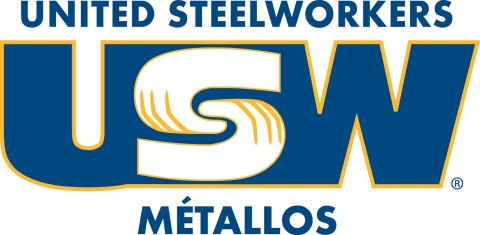Steelworkers Union Welcomes WSIB Decision Recognizing McIntyre Powder-Related Parkinson’s as Occupational Disease
Steelworkers Union Welcomes WSIB Decision Recognizing McIntyre Powder-Related Parkinson’s as Occupational Disease
TORONTO--(BUSINESS WIRE)--United Steelworkers (USW) Ontario Director Marty Warren welcomes the announcement that Ontario’s Workplace Safety and Insurance Board (WSIB) has finally recognized that Parkinson’s Disease is a direct result of exposure to McIntyre Powder.
McIntyre Powder was an aluminum-based inhalant used between 1943 and 1979 in mines and other industries where workers might be exposed to silica dust. The theory, eventually proved false, was that inhaling the powder would protect workers’ lungs.
“This a victory we have been fighting to win for many years,” Warren said of the WSIB decision.
“This means workers’ claims for compensation may finally be met. We consider this a significant step forward toward justice for elderly and sick retirees and their families, although for some families this news comes too late as many who should have been compensated while they were alive have passed away. In the case of those victims’ families, the Estate can file claims on behalf of their loved one.”
The USW has played a key role in the McIntyre Powder Project, which includes Occupational Health Clinics for Ontario Workers (OHCOW) led by Janice Hobbs Martell. The project has spent years gathering evidence on the health of exposed miners. Martell’s father, Jim Hobbs, was one such miner, who died with Parkinson’s in 2017.
“Every worker is somebody’s Jim Hobbs,” says Martell. “Every worker has a family who loves them. Every time the WSIB makes a decision on another worker’s claim, I want them to remember my dad’s name. I am incredibly grateful to everyone who stood up for this fight, and my deepest thanks go to the USW for their consummate support and solidarity.”
Health and safety for the USW is more than one of the union’s activities, Warren said.
“It is what we stand for at every level of the union,” he said. “Justice for workers never comes naturally. We have to defend our right to healthy and safe workplaces every day and fight hard for compensation as a result of workplaces that fail to meet our standards. Workers’ lives are worth more than a paycheque. And in a time of COVID-19, this is more important than ever.”
Warren added that the union has called for the recognition of the link between Parkinson’s and McIntyre Powder to be adopted by workers’ compensation boards across Canada.
He said the unfinished business in the fight for justice is the need to investigate the association between McIntyre Powder and lung diseases, cancers and cardiovascular conditions. We must also ensure that OHCOW is fully funded to enable them to continue their critically important work with occupational disease clusters, he said.
Besides Ontario, McIntyre Powder was used across Canada – in Quebec, British Columbia and in some mines in Manitoba, the Northwest Territories, Saskatchewan and the Yukon. It was also used worldwide, in mining and non-mining industries. Workers were exposed to the powder at dozens of factories in the U.S. and in mines in Mexico and Western Australia.
Contacts
Marty Warren, USW Ontario and Atlantic Director, 416-243-8792
Sylvia Boyce, USW Ontario and Atlantic Health, Safety and Environment Co-ordinator, 905-741-9830, sboyce@usw.ca
Janice Hobbs Martel, Founder of McIntyre Powder Project, 705-849-5802, minersinfo@yahoo.ca
Bob Gallagher, USW Communications, 416-434-2221, bgallagher@usw.ca
